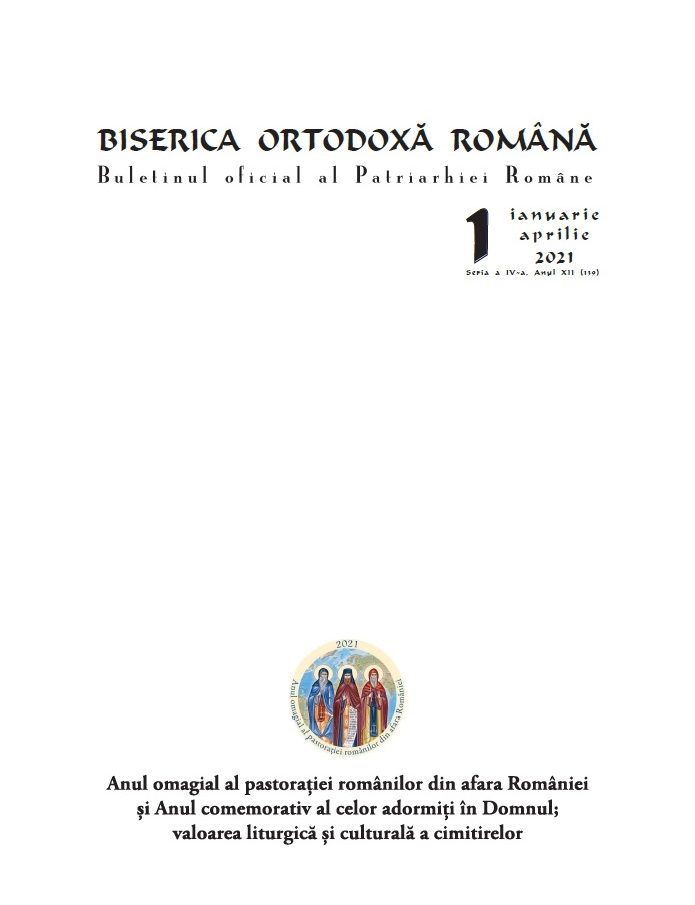Iuliu Scriban în Bucureștiul ocupat de germani (1916-1918) – germanofil sau patriot?
Iuliu Scriban in the German occupied Bucharest (1917-1918) and the accusations that followed
Author(s): Adrian DuțucSubject(s): History, Social Sciences, Recent History (1900 till today), Theology and Religion
Published by: Editura Institutului Biblic și de Misiune Ortodoxă
Keywords: Romania’s history; Bucharest under German occupation; relationship between Church and German High Command; controversy about Iulius Scriban’s activity; arguments defending Iulius Scriban;
Summary/Abstract: This study focuses on a particular period in Romania’s history, namely the occupation of Bucharest by the German army during the First World War. FromThis short and intense chapter in Romania’s history, a subchapter is under analysis:Iuliu Scriban’s activity in this period of time and especially the character of its work.The reason of our interest in this subject has to do with the allegations that have been made by many contemporary personalities (I.G. Duca and Nicolae Iorga being the most important) that Iuliu Scriban betrayed the national interests.In the light of what we mentioned above, one can see that, despite numerous criticisms from contemporary personalities, the accusation of collaborating with the German occupying force does not have very strong arguments. The accusation is understandable given the context in which it was made. Back then, anti-Germanfeelings were intense, and against those who betrayed the Romanian cause there wereeven higher. The pain caused by the military defeat against von Makensen’s offensive along with the humiliation of leaving the capital city to the German occupation caused many to seek scapegoats. Most likely this mindset has led many to accuse those who remained in Bucharest, judging them all the same.In the case of Iuliu Scriban, despite all the accusations, he was found not guilty. But the fact that in 1926 he considers himself obliged to write a book to explain what happened shows that in the period after the German occupation, either his enemies made efforts so the public remembered his accusation and not that he was found not guilty, either that, due to misinformation, this had remained the general opinion about him.What we can clearly state about the controversy surrounding Iulius Scriban’s activity during the German occupation is that he was not pro-German. Although some significant data about him might fall into this category (he had studied inGermany at Baden-Baden, he had an affinity for German theology and culture, he spoke German, he had chosen to stay in Bucharest at that time) Iulius Scribanhad belonged before the war to “Liga Culturală” (the Cultural League), an entity insistently fighting for Romania’s entry in the war alongside the Allies. A pro-German intense activity before Romania entered the war would have been a clear sign that Scriban was an agent of the Germans, but this activity never existed.The most important arguments that defend Iuliu Scriban are the events that took place under German occupation. These events broadly suggest the relationship between the Church and the German High Command in general and between Iuliu Scriban and the German occupation force in particular.
Journal: Revista Biserica Ortodoxă Română, Buletinul oficial al Patriarhiei Române
- Issue Year: 2021
- Issue No: 1
- Page Range: 287-303
- Page Count: 17
- Language: Romanian

